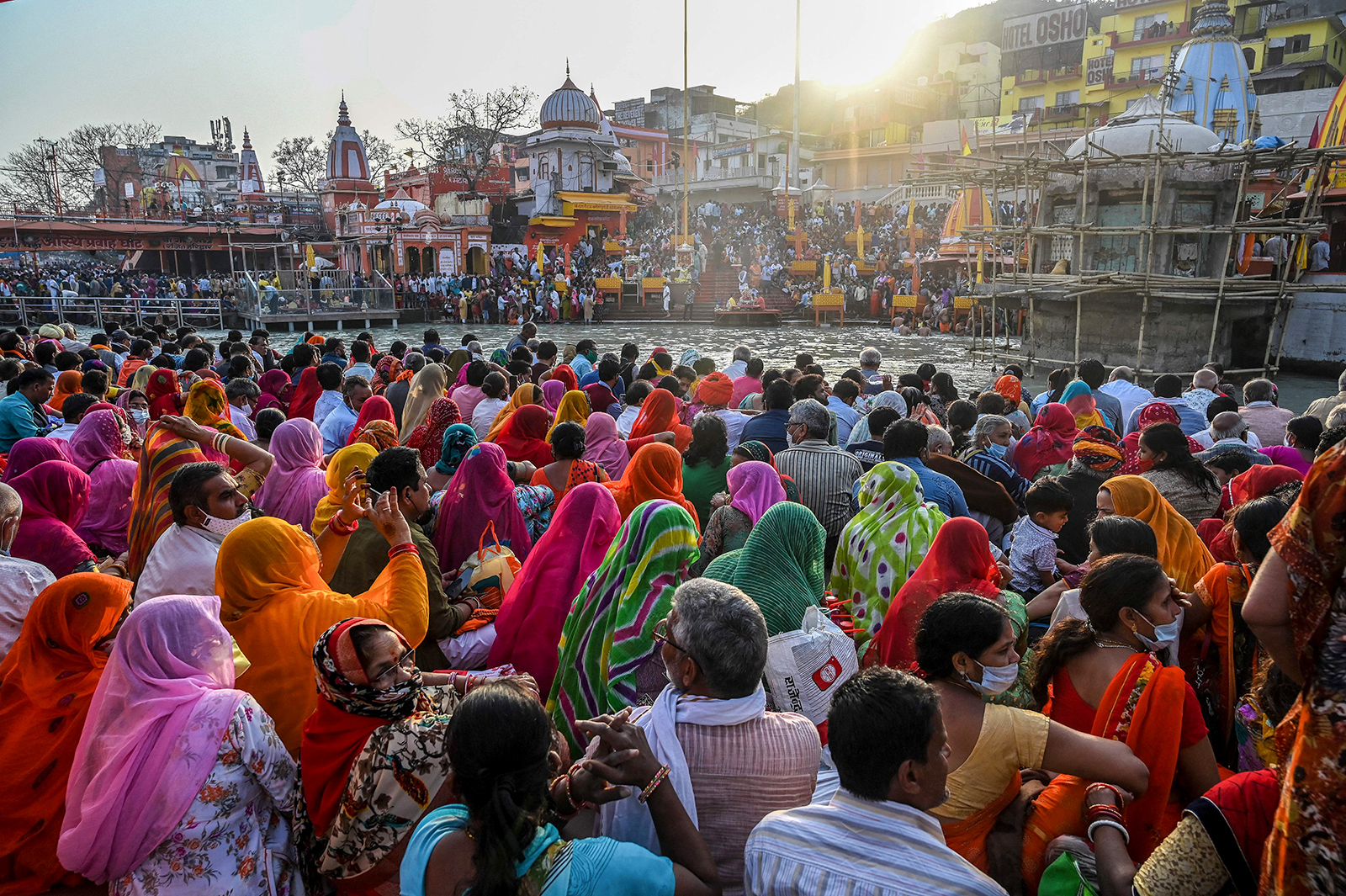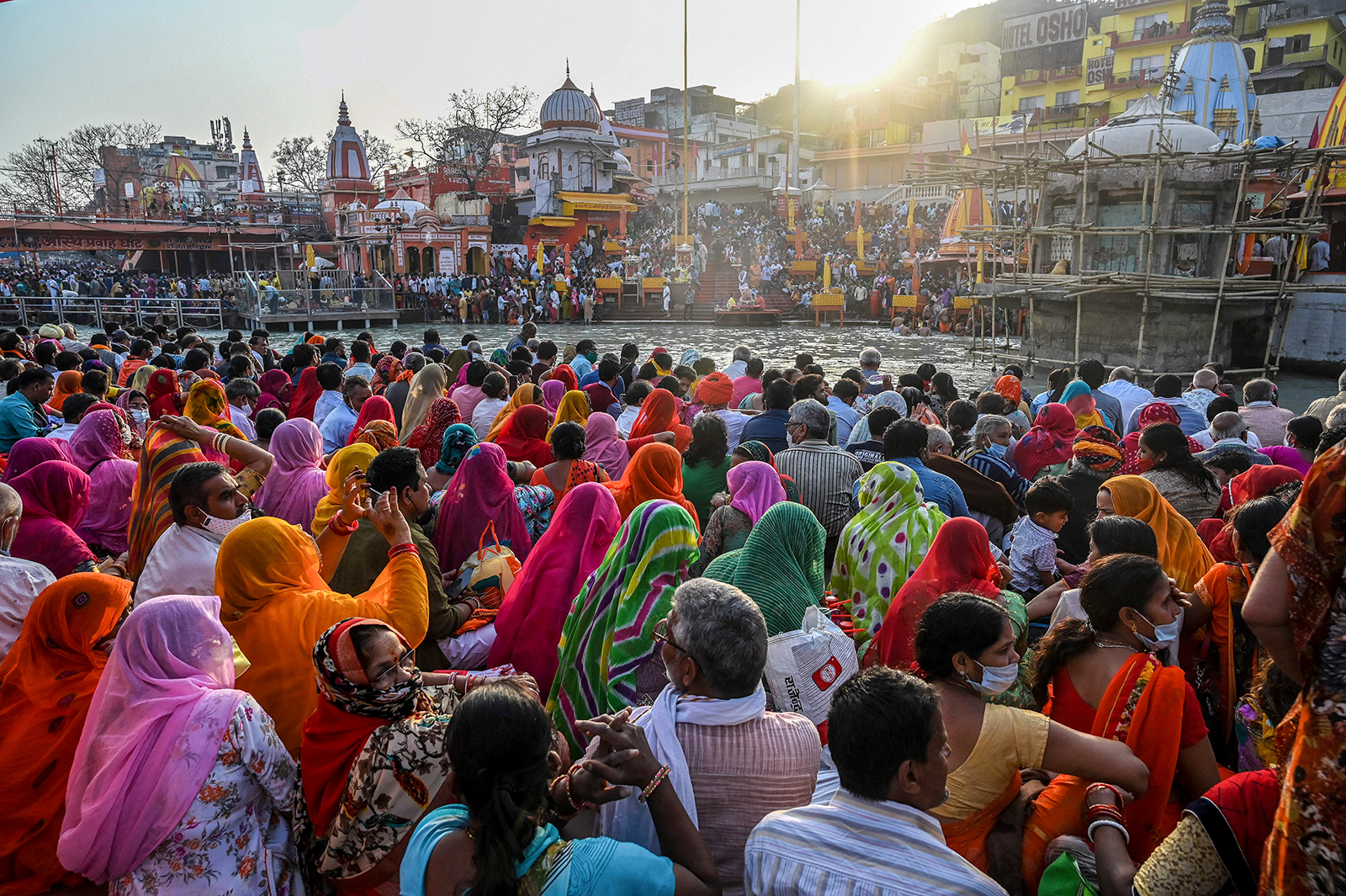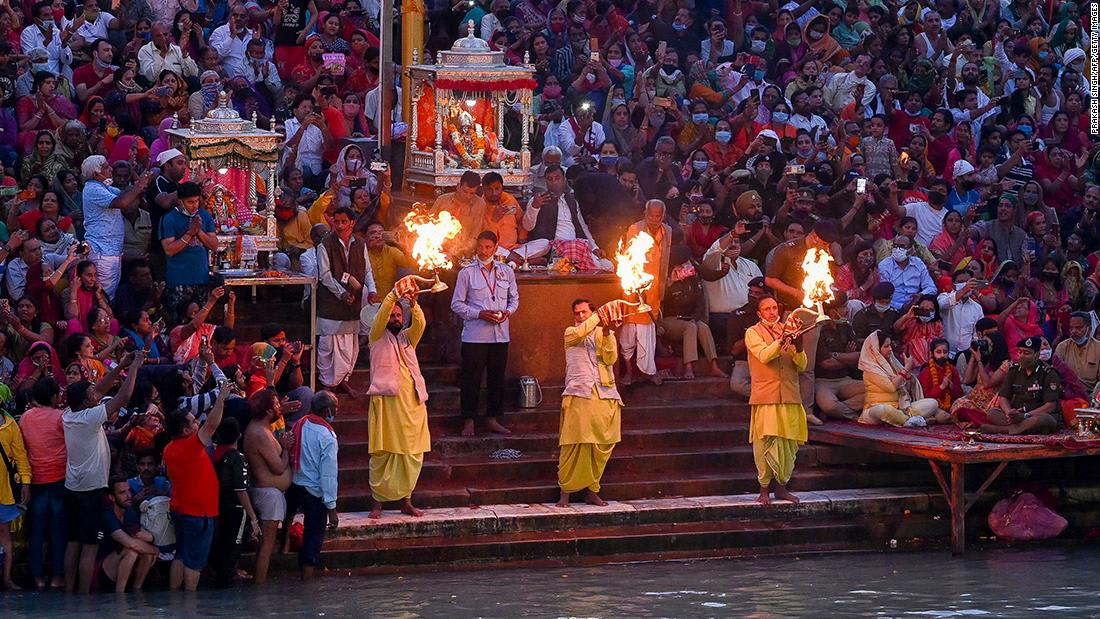UK variant accounts for nearly 9 in 10 new infections in Germany

Massive crowds of Hindus began arriving in the northern Indian city of Haridwar on Thursday for the largest religious pilgrimage on Earth, even as experts warned it could cause a surge in Covid-19 cases as the country grapples with a second wave.
The months-long Kumbh Mela festival, one of the most important Hindu celebrations, typically takes place every 12 years and draws tens of millions of pilgrims to four rotating sites.
This year, it takes place in Haridwar, in the foothills of the outer Himalayas in Uttarakhand state, where devotees attend prayers, and wash their sins away in the sacred waters of the Ganges River. According to some myths associated with the festival, the river water turns into “amrita,” or the nectar of immortality, on particular days.
But this year, Covid-19 measures have seen the festival postponed and then scaled back. The traditional start date, called Makar Sankranti, was in January, but people were not authorized to take holy baths in the river until the government’s formal launch in April.
Although authorities moved the start date, and shortened the pilgrimage from three and a half months to just one month, many people have chosen to disregard the official guidelines, said Oommen Kurian, senior fellow and head of health initiative at the Observer Research Foundation in New Delhi.
Hundreds of thousands of people have been flocking to Haridwar since Makar Sankranti in January anyway — congregating in close quarters for hours a day, sharing public facilities and having meals together. Photos show people washing their faces and taking full body dips into the sacred waters, then attending evening prayers by the banks of the river, lighting candles and making religious offerings.
Thursday saw the first ceremonies and holy baths take place by the banks of the Ganges, with holy men carrying out prayer rituals, said festival officer Harbeer Singh. Religious flags were hoisted ahead of their arrival, marking the formal start of the celebrations.
Read the full story:
![]()



